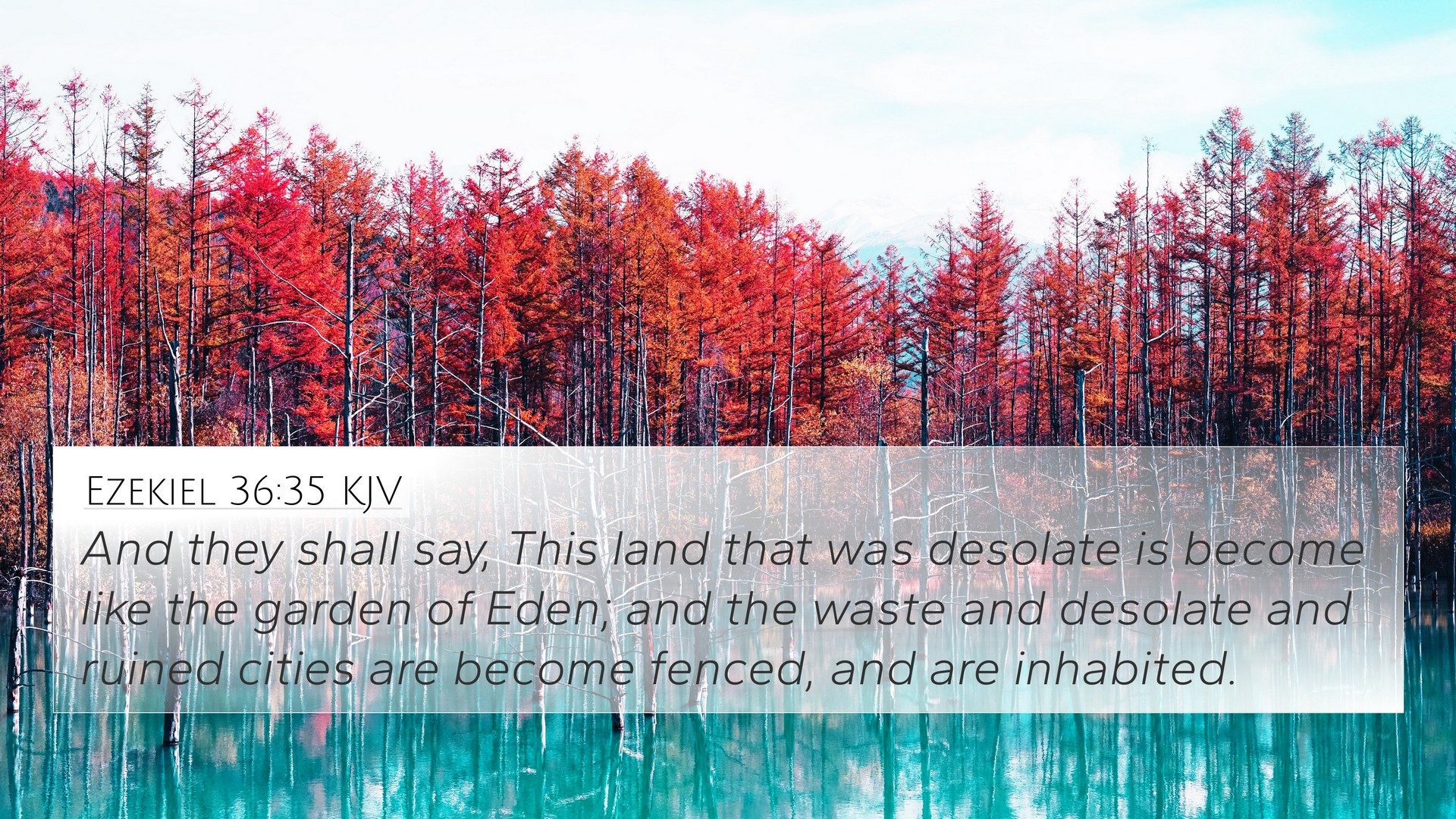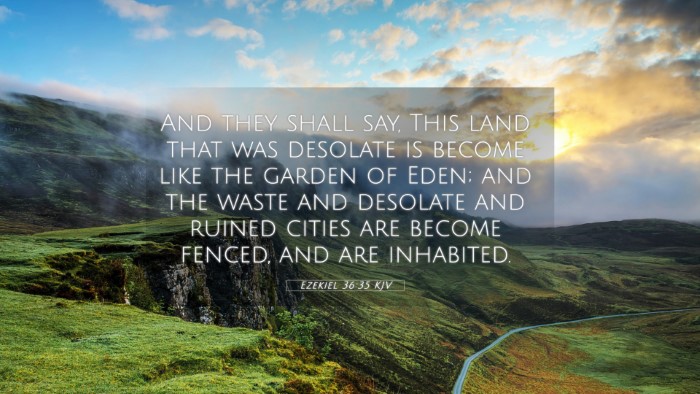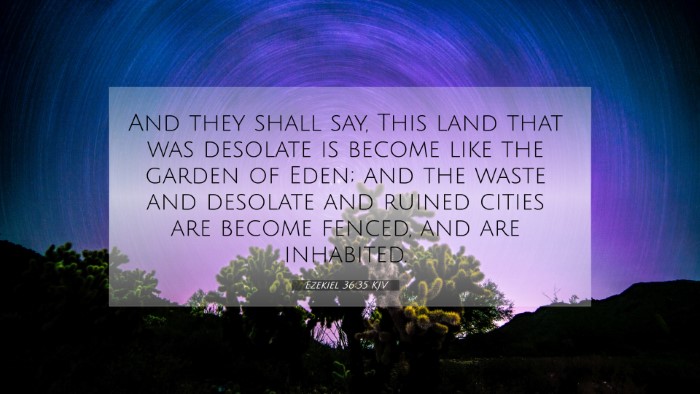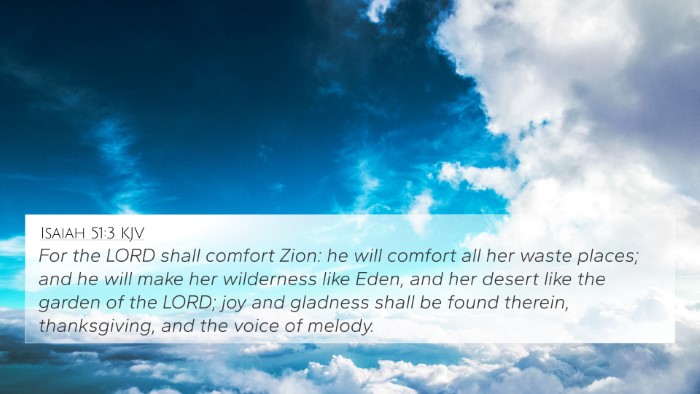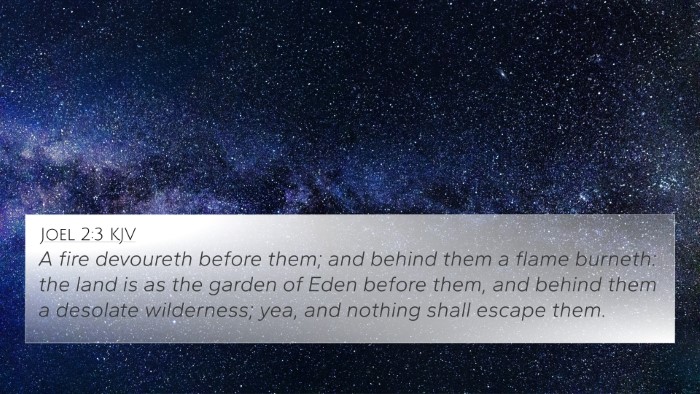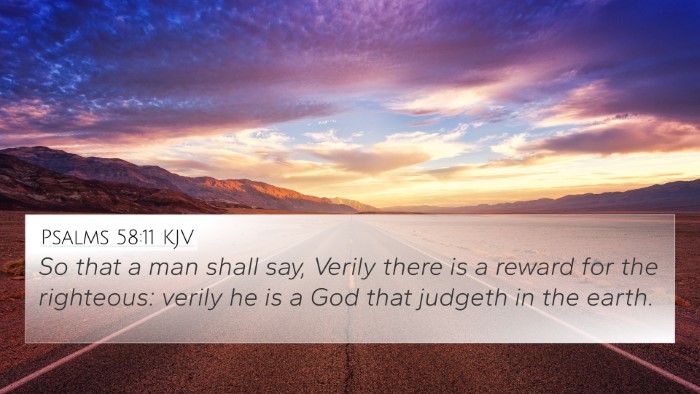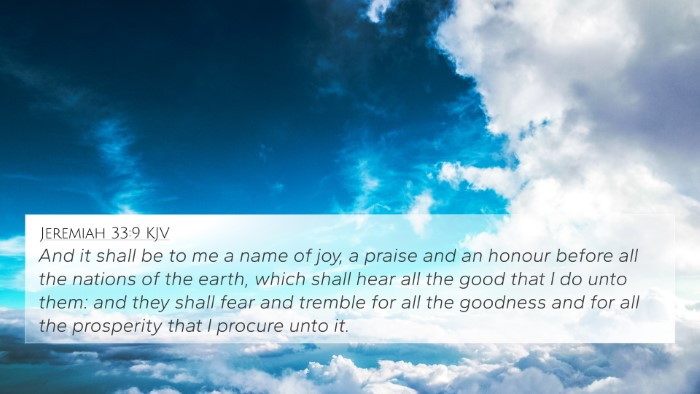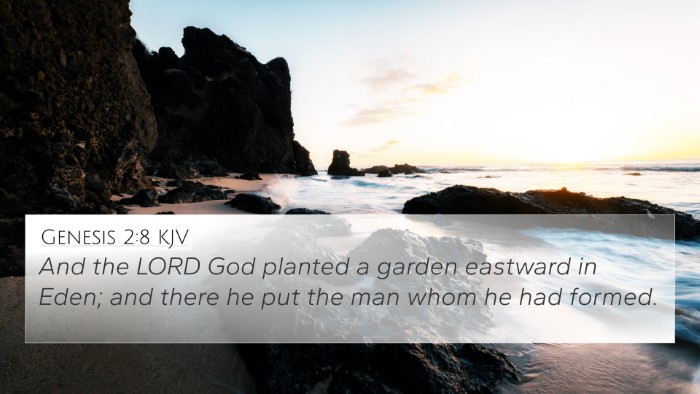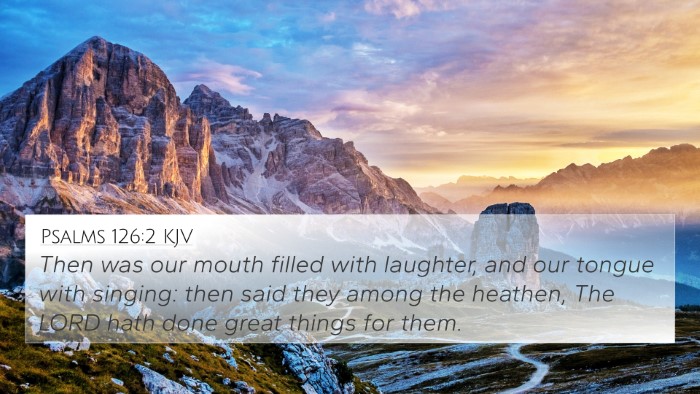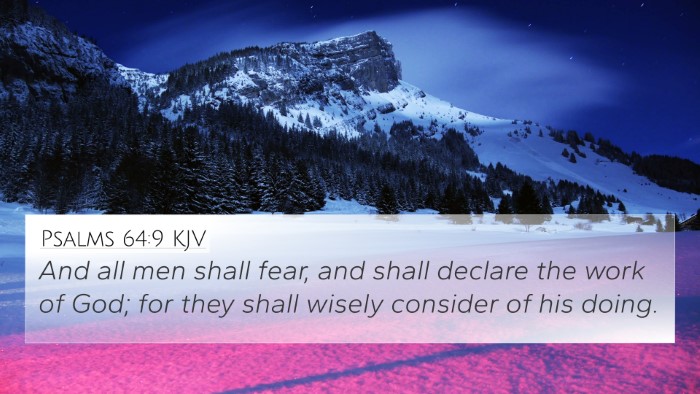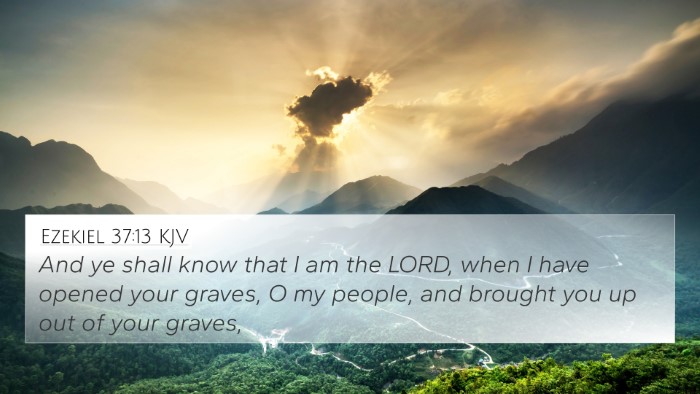Ezekiel 36:35: Understanding the Meaning and Context
Ezekiel 36:35 states, "And they shall say, This land that was desolate is become like the garden of Eden; and the waste and desolate and ruined cities are become fenced, and are inhabited." This verse holds significant meaning, symbolizing restoration and renewal, themes prevalent throughout the Scriptures.
Context of Ezekiel 36:35
The Book of Ezekiel was written during the Babylonian exile, a period marked by despair and loss for the Israelites. Ezekiel speaks a prophetic word of hope, indicating that God will one day restore Israel to its former glory. This verse is situated within a larger context of God’s promise to revive not only the land but also His people.
Combined Insights from Public Domain Commentaries
-
Matthew Henry: He emphasizes the transformation of desolate places into flourishing lands, representing God's power to renew and restore. Henry notes that this serves as a metaphor for spiritual rebirth in the lives of believers.
-
Albert Barnes: Barnes points out that the description of the land becoming like Eden reflects God's intent to bless His people abundantly. It highlights a future time when restoration will occur, both physically and spiritually.
-
Adam Clarke: Clarke interprets the ruins as symbolizing the sin and devastation present in the world, suggesting that God's intervention offers hope. His commentary elucidates that the rebuilt cities represent the return of God’s favor to His people.
Thematic Connections to Other Scriptures
Ezekiel 36:35 resonates with various themes throughout the Bible, highlighting restoration, hope, and the participation of God in the lives of His people. Below are notable cross-references illustrating these connections:
- Isaiah 51:3 - "For the Lord will comfort Zion; he will comfort all her waste places..."
- Joel 2:25-26 - "I will restore to you the years that the swarming locust has eaten..."
- Revelation 21:4 - "He will wipe every tear from their eyes, and there will be no more death or mourning..."
- Psalms 107:35 - "He turns a desert into pools of water, a parched land into springs of water."
- Jeremiah 31:23 - "The Lord bless you, O habitation of justice, and mountain of holiness!"
- Amos 9:14 - "I will bring back the captives of my people Israel; they shall build the waste cities and inhabit them..."
- Matthew 5:5 - "Blessed are the meek, for they shall inherit the earth."
Importance of Cross-Referencing Bible Verses
Using tools for Bible cross-referencing can significantly enhance our understanding of biblical texts. Cross-referencing allows us to:
- Identify connections between Old and New Testament themes.
- Engage in comparative Bible verse analysis for deeper insights.
- Establish thematic Bible verse connections, making the Scriptures come alive.
- Encourage comprehensive Bible cross-reference studies that explore interconnected messages.
Application in Study and Reflection
For those looking to deepen their biblical study, here are some practical steps:
- Use a Bible Concordance: Identify relevant passages that connect with Ezekiel 36:35.
- Engage in Cross-Reference Bible Study: Explore thematic links that enhance understanding of restoration messages.
- Reflect on Inter-Biblical Dialogue: Consider how this verse speaks to greater truths across Scripture.
Final Thoughts
Ezekiel 36:35 is a powerful reminder of God’s promise of renewal. The connections across scriptures provide a broader understanding of His redemptive plan for humanity. Through cross-referencing biblical texts, believers can find hope, encouragement, and deeper meaning within the Scriptures.
